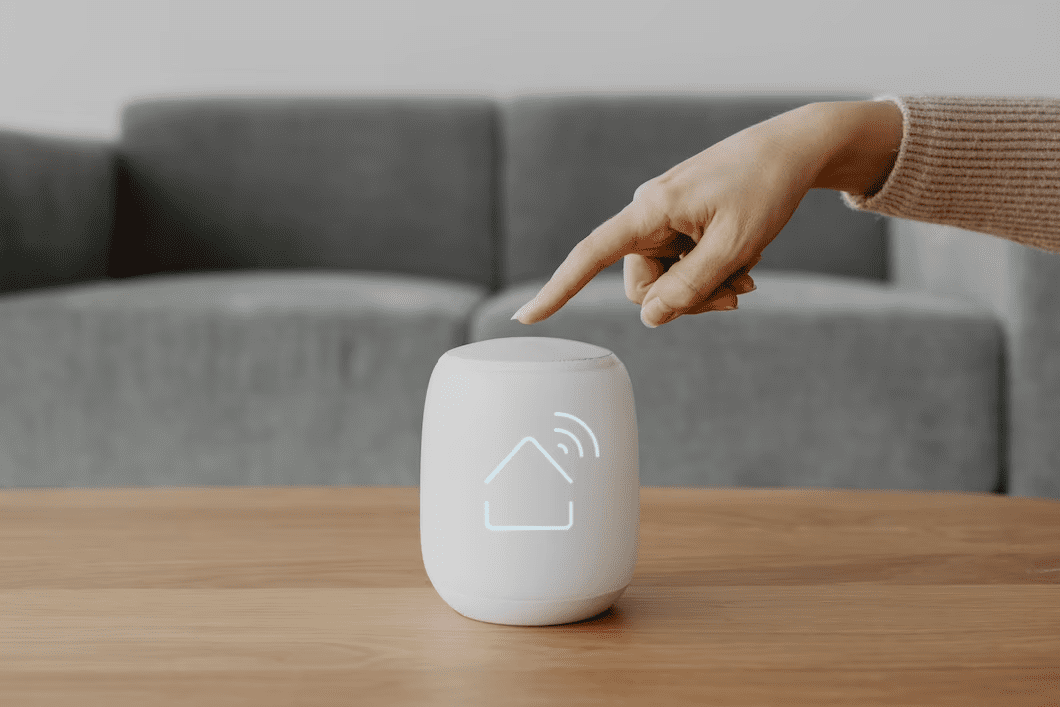Introduction
Man-made reasoning (artificial intelligence) has entered pretty much every part of our lives. From self-driving vehicles to personal assistants like Siri, AI is all around us. Now, AI is revolutionizing home automation as well. High level computer based intelligence fueled innovations are empowering “smart homes” that can work machines, security frameworks, and different gadgets utilizing voice orders or self-learning abilities. This new wave of home automation promises to make our homes safer, more energy efficient and overall, more convenient to live in.
How AI-Powered Garage Door Openers Work
One of the most widely recognized shrewd home apparatuses controlled by man-made intelligence is the carport entryway opener. Traditional garage door openers allow you to open and close the garage door using a remote control or wall switch. However, AI-powered smart garage door openers take automation to the next level. They have built-in microphones and speakers that allow them to be operated using voice commands to virtual assistants like Amazon Alexa or Google Assistant. Homeowners can simply say “Alexa, open the garage door” and it will listen and respond.
Behind the scenes, advanced computer vision and machine learning algorithms allow these openers to recognize objects, detect people, learn routines and behaviors over time to provide smarter functionality. For example, some models have cameras that can detect when you drive into the garage and automatically open the door for you. Or it can shut the door once it sees you exiting with your vehicle. This type of automated functionality provides convenience and safety without needing physical remote controls or buttons. The system is also connected to the internet so it can be controlled remotely using a smartphone when away from home.
Energy Efficient Lighting Control
AI is also enabling more energy efficient lighting solutions for smart homes. Traditional light switches only allow turning lights on and off but don’t consider factors like occupancy or sunlight levels. AI-powered smart lighting systems have motion sensors, light sensors and advanced machine learning algorithms. They can automatically turn lights on when someone enters a room and off a few minutes after they leave to save energy. Sensors also adjust brightness based on the amount of natural light available. Over time, the system gets better at predicting usage patterns and turns lights on only when needed. This has significant potential to reduce home electricity bills.
Whole-Home Audio and Entertainment
Using AI, smart speakers and virtual assistants like Alexa and Google Assistant are transforming how we listen to music and control our entertainment systems. Voice commands offer a hands-free way to play songs, switch inputs, control volume and more. Advanced AI is enabling these assistants to understand contextual and multi-step commands. For example, asking “Alexa, play a romantic playlist in the bedroom” or “Alexa, pause the TV and dim the lights”. AI is also powering new types of smart displays that act as central control panels for your smart home ecosystem. Homeowners can see camera feeds, check on devices, get notifications and control everything centrally.
Home Security and Convenience
AI is a game changer for home security by enabling automated systems that actively monitor the home. Intelligent cameras with computer vision can detect unfamiliar faces, track motion patterns and send alerts to your phone. Combined with microphones, they act as 24/7 surveillance and help monitor for dangers like fires or carbon monoxide leaks. Smart door locks let you lock and unlock doors remotely. Advanced audio and image recognition algorithms also help filter out false alarm triggers. AI assistants integrate with these systems to allow arming/disarming security easily using voice commands. In an emergency, AI can quickly guide emergency services to your location.
Smart Appliances and Beyond
AI is finding its way into more traditional appliances as well. WiFi-enabled, voice-controlled washing machines, dryers and dishwashers can be started remotely. Fridges and freezers come with connected displays and webcams inside – letting you see inventory, get alerts if items are running low and remotely add items to a shopping list. Advanced algorithms enable these “smart fridges” to automatically reorder items. The future promises even more innovative AI-powered appliances that actively assist in tasks like cooking. Between enhanced convenience, energy savings and safety benefits – AI-based home automation looks set to become mainstream in the coming years.
FAQs
Here are a few normal inquiries individuals have about computer based intelligence fueled savvy homes:
Is it difficult and expensive to install a smart home system?
Most basic smart home devices install easily and plug directly into standard electrical outlets. Smart switches, bulbs, locks and speakers have simple do-it-yourself installations. Larger systems do require wiring and configuration but professional installation services are available. Upfront device costs are dropping so full smart home systems are now affordable for average households.
Are smart homes secure? Can hackers access my info?
All connected devices pose some security risks but smart home manufacturers take privacy and security very seriously. Devices use bank-grade encryption for data in transit. Look for products from reputed brands with regular firmware updates. As with computers/phones, following basic cyber safety practices like strong unique passwords significantly reduces risks of unauthorized access.
What if the internet or power goes out?
While internet connectivity lets you control smart homes remotely, most devices still function fully in local offline/emergency modes. Devices remember user settings and routines without cloud data. Many also include backup battery modes to keep key functions like security and lighting operational during brief power outages. Traditional manual controls are still supported for those uncomfortable relying solely on smart technologies.
So, in summary, AI-powered smart homes represent a major paradigm shift in home automation. Rather than isolated remote-controlled devices, intelligent systems that use advanced machine learning provide unified automated control, convenience and energy savings for modern lifestyles. Companies are rapidly bringing costs down as the technologies mature, making an AI home of the future accessible to most households.



























